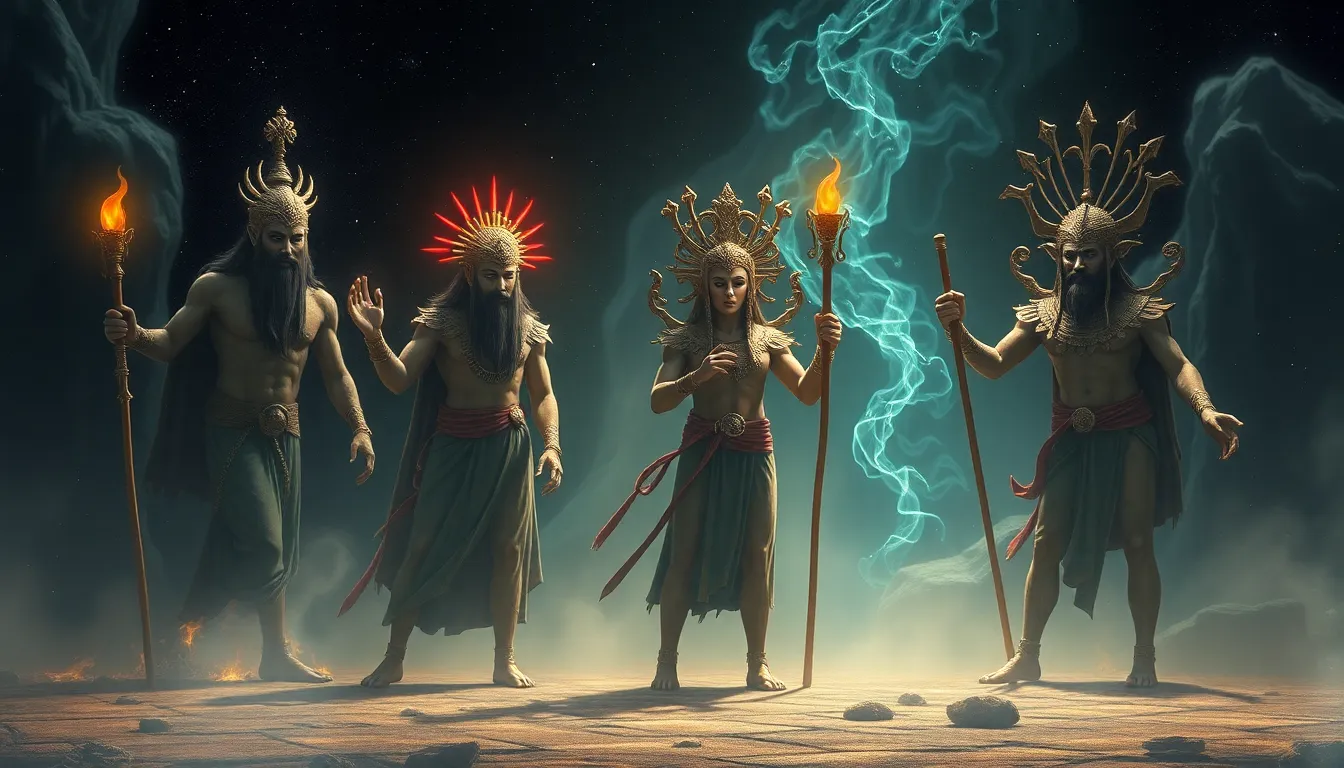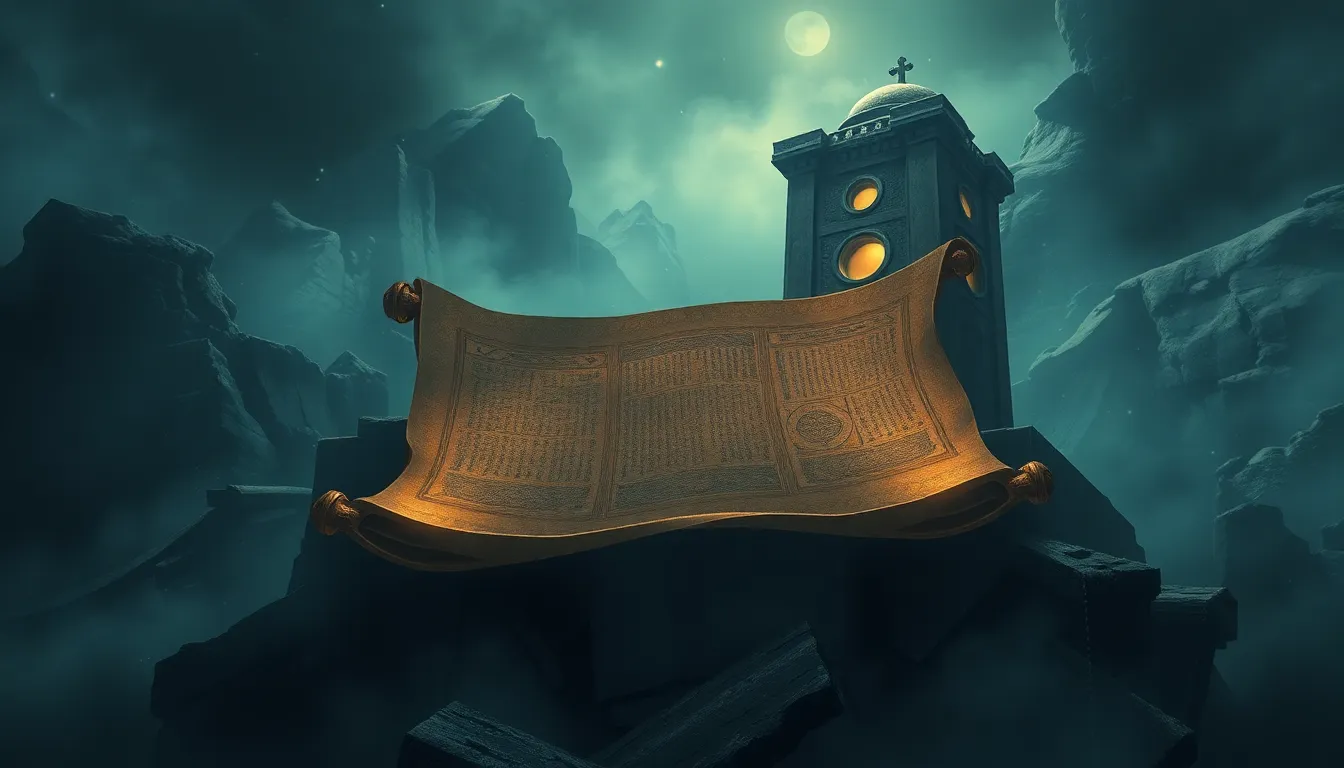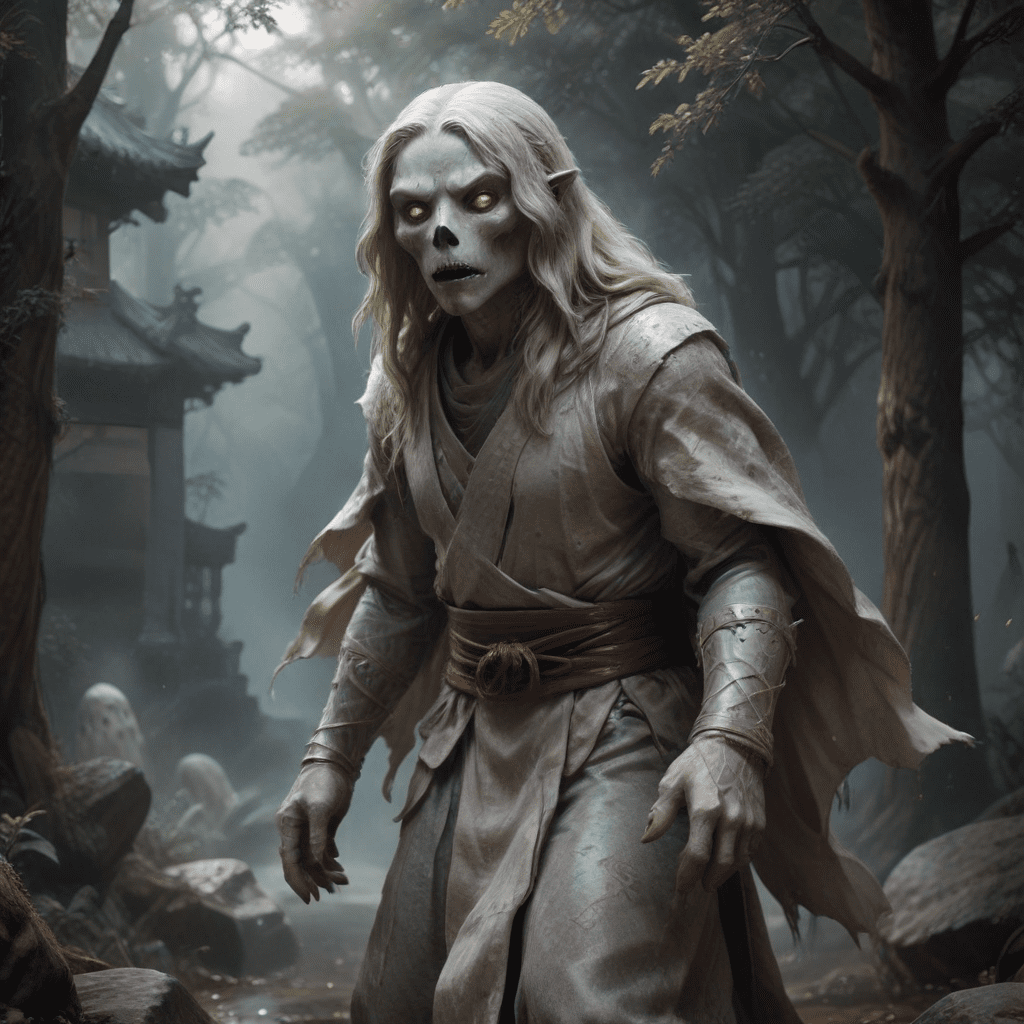Ancient Deities and Their Role in Shaping Human Beliefs
Introduction to Ancient Deities
Throughout human history, deities have occupied a central place in the belief systems of various cultures. These deities, often defined as supernatural beings or gods, serve as critical components in the understanding of the universe and human existence. They are not merely figures of worship; they embody the hopes, fears, and values of the societies that venerate them.
The significance of deities extends beyond the confines of religious practice; they shape cultural identities, influence moral codes, and provide explanations for the mysteries of life and nature. Through their narratives, rituals, and representations, ancient deities have left an indelible mark on human history and spirituality.
The Historical Context of Ancient Beliefs
To understand the role of ancient deities, one must consider the historical context in which they emerged. Various time periods and cultures have developed their own pantheons, influenced by geographical, social, and environmental factors. For instance:
- The Ancient Egyptians worshipped a vast array of deities, reflecting their beliefs about the afterlife and the natural world.
- The Greeks created a pantheon of gods that personified human traits and emotions, illustrating their understanding of the human experience.
- In Hinduism, deities represent various aspects of life and the cosmos, showing a deep connection to the cyclical nature of existence.
- Norse mythology features gods and goddesses who embody the harsh realities of life in a challenging environment.
Geography played a crucial role in shaping these diverse pantheons, as different cultures responded uniquely to their surroundings, leading to a rich tapestry of beliefs and practices.
Major Deities Across Civilizations
A comparative analysis of deities from various cultures reveals both thematic similarities and differences. For example:
- In Greek mythology, Zeus is the king of the gods, wielding power over the sky and thunder, similar to the Roman god Jupiter.
- In Egyptian mythology, Osiris represents resurrection and the afterlife, akin to the Hindu god Shiva, who embodies destruction and regeneration.
- Norse god Odin is a seeker of knowledge and wisdom, paralleling the Greek goddess Athena, who embodies wisdom and warfare.
These comparisons highlight how different cultures interpreted similar existential themes through their deities, allowing for a deeper understanding of humanity’s shared experiences.
Deities as Personifications of Natural Forces
Ancient cultures often attributed natural phenomena to the actions and influences of deities. This attribution served as a means to explain the unexplainable and to provide comfort in the face of nature’s unpredictability. Examples include:
- Thunder and Storms: In many cultures, such as the Greeks with Zeus and the Norse with Thor, deities are seen as wielders of thunderbolts and storms.
- Fertility: Deities like Demeter in Greek mythology represent agricultural fertility, ensuring bountiful harvests and the cycle of life.
- Seasons: The changing seasons are often linked to deities, such as Persephone in Greek mythology, whose annual descent to the underworld explains winter.
Through these personifications, ancient societies found a way to connect their daily lives to the larger forces of the universe, fostering a sense of harmony and order.
The Influence of Deities on Moral and Ethical Frameworks
Deities have significantly shaped the moral and ethical frameworks of ancient societies. Many cultures looked to their gods for guidance on how to live virtuous lives. For example:
- In ancient Egypt, Ma’at represented truth and justice, guiding individuals to live in harmony with cosmic order.
- In Hinduism, the teachings of deities like Krishna emphasize dharma, or righteous duty, influencing ethical behavior.
- The Ten Commandments in Judeo-Christian traditions are derived from divine instruction, establishing foundational moral principles.
These teachings often provided a framework for social norms and laws, reinforcing the importance of morality in maintaining societal order.
Rituals and Worship Practices Surrounding Deities
Rituals and ceremonies dedicated to ancient deities formed an integral part of cultural life. These practices varied widely across civilizations but often included:
- Offerings and sacrifices to appease the gods and seek their favor.
- Festivals celebrating the deities, which reinforced community bonds and social cohesion.
- Priestly roles, where designated individuals acted as mediators between the divine and the community.
The community’s involvement in these practices fostered a shared identity and collective purpose, strengthening the ties between individuals and their deities.
Mythology and Storytelling: The Narrative Role of Deities
Myths and legends featuring deities serve as powerful narratives that convey cultural values and beliefs. These stories often explore themes of heroism, morality, and the human condition. For instance:
- The epic tales of Gilgamesh highlight the quest for immortality and the nature of friendship.
- The stories of the Iliad and the Odyssey illustrate the interplay between divine intervention and human agency.
- Hindu epics like the Mahabharata and Ramayana explore duty, righteousness, and the complexities of dharma.
Through storytelling, societies transmitted knowledge, values, and traditions from one generation to the next, ensuring the continuity of cultural identity.
The Transition from Polytheism to Monotheism
The historical shift from polytheistic beliefs to monotheistic religions marks a significant evolution in spiritual thought. This transition often involved:
- The consolidation of various deities into a single, all-powerful god, as seen in Judaism, Christianity, and Islam.
- The reinterpretation of ancient narratives to align with monotheistic beliefs, which often emphasized ethical monotheism.
- The decline of polytheistic practices, as societies embraced new religious frameworks that offered a different understanding of the divine.
Despite this shift, the legacy of ancient deities continues to resonate within modern spiritual contexts.
Modern Interpretations and Revivals of Ancient Deities
In contemporary society, there has been a resurgence of interest in ancient deities and belief systems. Various movements and practices aim to revive these ancient traditions, including:
- Neopaganism, which seeks to reconnect with pre-Christian beliefs and nature worship.
- Folklore and mythology studies that promote the understanding and appreciation of ancient narratives.
- Spirituality that integrates ancient practices and philosophies into modern life.
This revival reflects a desire to explore the rich tapestry of human spiritual heritage and to find meaning in ancient wisdom.
Conclusion: The Enduring Legacy of Ancient Deities
The impact of ancient deities on human beliefs is profound and far-reaching. They have shaped cultures, influenced moral frameworks, and provided narratives that resonate through the ages. As we reflect on the role of these ancient figures, it becomes clear that their legacy endures in contemporary society and spirituality.
By exploring the rich history and significance of ancient deities, we gain valuable insights into the human experience and the enduring quest for understanding and connection within the universe.




